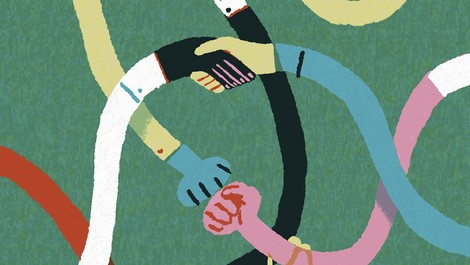Your podcast discovery platform
Curious minds select the most fascinating podcasts from around the world. Discover hand-piqd audio recommendations on your favorite topics.

piqer for: Global finds Health and Sanity Doing Good
Bangalore-based Rashmi Vasudeva's journalism has appeared in many Indian and international publications over the past decade. A features writer with over nine years of experience heading a health and fitness supplement in a mainstream Indian newspaper, her niche areas include health, wellness, fitness, food, nutrition and Indian classical Arts.
Her articles have appeared in various publications including Mint-Wall Street Journal, The Hindu, Deccan Herald (mainstream South Indian newspaper), Smart Life (Health magazine from the Malayala Manorama Group of publications), YourStory (India's media technology platform for entrepreneurs), Avantika (a noir arts and theatre magazine), ZDF (a German public broadcasting company) and others.
In 2006, she was awarded the British Print-Chevening scholarship to pursue a short-term course in new-age journalism at the University of Westminster, U.K. With a double Masters in Globalisation and Media Studies from Aarhus Universitet (Denmark), University of Amsterdam and Swansea University in Wales, U.K., she has also dabbled in academics, travel writing and socio-cultural studies. Mother to a frisky toddler, she hums 'wheels on the bus' while working and keeps a beady eye on the aforementioned toddler's antics.
Podcast: Familiarity Might Breed Contempt But Certainly Not Creativity!
No matter how many quotes and gifs we might see to convince ourselves to embrace change, our brains will still prefer the familiar. We tend to huddle together with people who like the same things we do, laugh at the same jokes and hold the same political views. Our echo chambers. While this seems like stating the obvious, it is this preference for familiarity that causes the sort of deep political polarisation we are witnessing in the world today. It also makes parochialism and identity-based relationships seem ‘okay’.
With this backdrop in mind, Hidden Brain’s latest podcast looks at how familiarity might be comfortable but not exactly conducive to creativity. Featured in the podcast is well-known social scientist Adam Galinsky, whose many studies have significantly proved that people with deeper connections with different cultures are more creative and certainly better able to think out of the box. In fact, studies have also indicated that the psychological effects of travel, living abroad and interacting with people from different cultures can transform a person’s understanding of themself. This, of course, is linked to several benefits such as career success, mental well-being and increased ability to cope with stress.
Harvard professor Richard Freeman (also featured) found out to his chagrin that even scientists tend to stick to their own groups. It prompted him to conduct a study on diversity in science where he discovered that scientific research conducted by ethnically diverse researchers were cited more often.
This is part of a larger debate that the podcast explores: In group dynamics, what is better? Do people who share similar interests and backgrounds come up with better ideas, or do people with different perspectives and cultures? The best part of the half-an-hour listen is the discussion about application of ideas in vastly different areas such as arts, fashion and business, and how diversity affects creative thinking in practical terms.

Source: Jennifer Schmidt, Shankar Vedantam, Parth Shah, Tara Boyle Image: Nick Shepherd/Get... npr.org